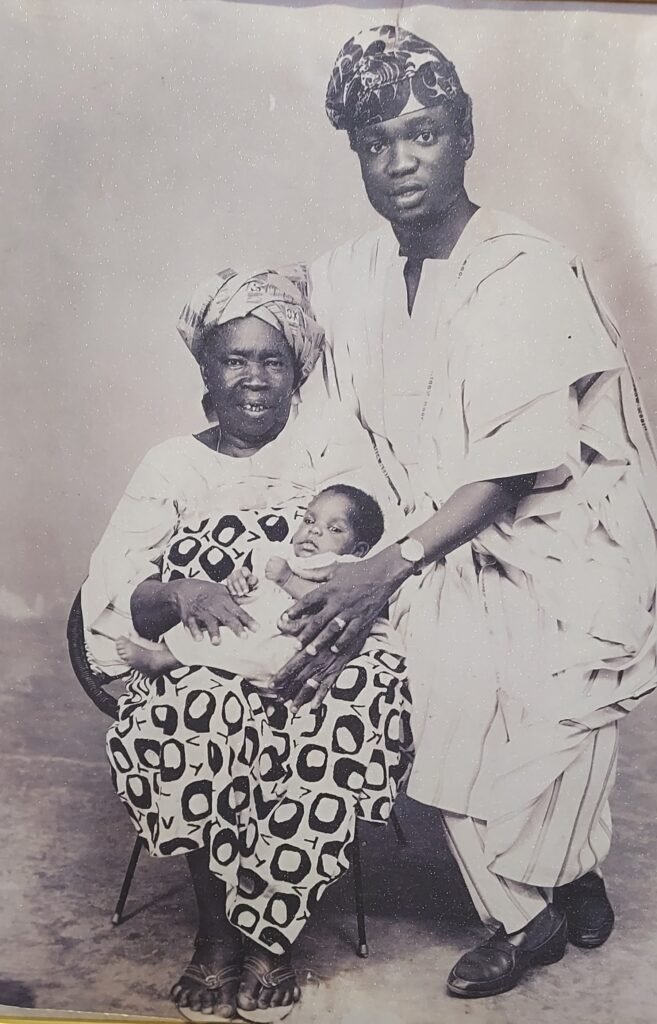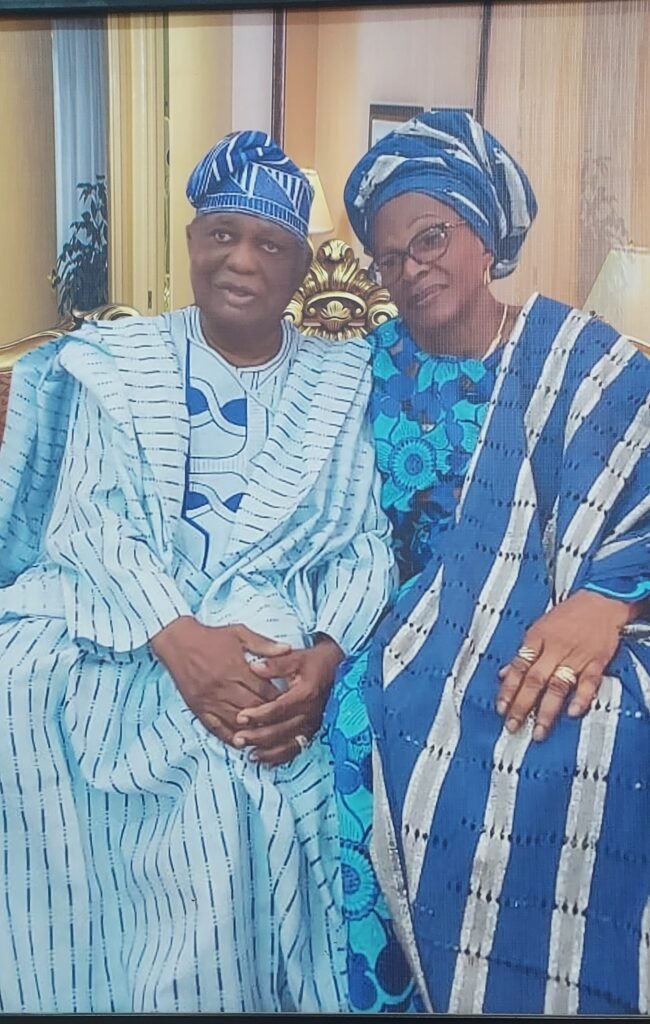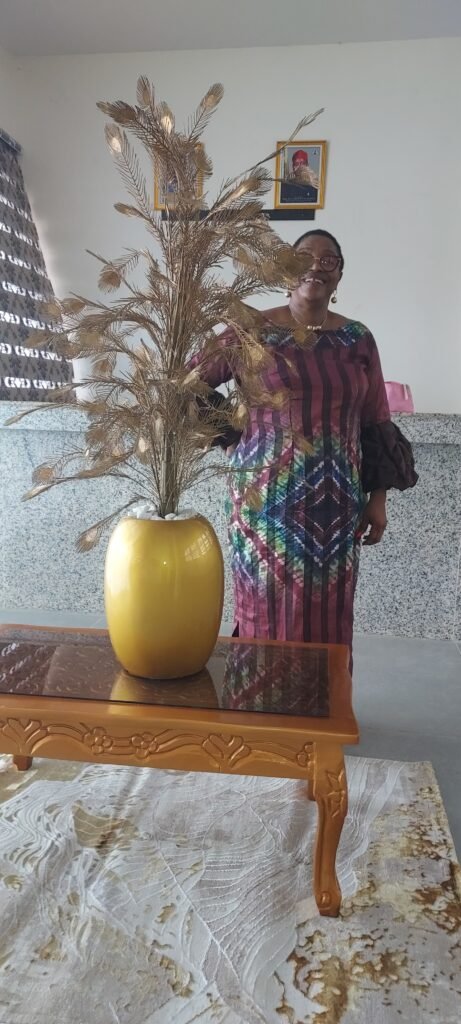Honourable Olubunmi Amao: A Journey Through Heritage, Leadership, and Resilience
By Temilade Aloko

In this recent exclusive interview, Honourable Olubunmi Amao, a proud daughter of Ibadanland and former Director General of the Centre for Black and African Arts and Civilization (CBAAC), shared her thoughts on her beloved city. The interview aired on Oke’badan, a one-hour documentary talk show that delves into the history, foundation, and evolution of Ibadan, celebrating its thriving businesses, unique way of life, and notable personalities who have contributed to its development.
Honourable Amao opened up about her deep love for Ibadan, describing the city’s people as hardworking, honest, and unpretentious. She remarked on the perception that Ibadan people are fond of “abusing” others, explaining, “Sometimes, they even abuse themselves before others. Ibadan people are very interesting to be with.” While she admitted she does not engage in abusive language, she acknowledged her outspoken nature. Comparing Ibadan’s love for partying to other regions, she noted, “Ibadan loves partying but not as much as the Ijebus.” She also emphasized Ibadan’s strong cultural identity, particularly their distinctive dialect, which she sees as a hallmark of the city.
Childhood Memories and the Essence of Communal Living
Reminiscing about her childhood, Honourable Amao fondly recalled growing up with her paternal grandmother at Oke-Odo, Ibadan. She vividly described how her grandmother often chanted her Oriki (Yoruba praise poetry) and the vibrant experiences within the Agboole (family compound). She particularly cherished the Egungun Festival, where she witnessed the different masquerades that brought joy and excitement to the community.
However, she lamented the loss of communal living, reminiscing about the times when large families lived together in harmony, sharing moonlit games and stories.
Educational Journey
Honourable Amao attended St. Peter’s Primary School, Aremo, Ibadan, while living with her grandmother. After her grandmother’s death, she moved back to Lagos to live with her parents and continued her education at Reagan Memorial Baptist School, Onike, Yaba. In 1975, she gained admission to Ibadan Grammar School, but her father, noticing her playful nature, withdrew her and sent her to Iperu to live with her uncle, a school principal, for closer supervision.
Reflecting on the difference in parenting styles between her time and today, she praised her father for his strictness, which she credits for shaping her character, although she noted, “In those days, parents didn’t tolerate nonsense, but they also didn’t allow children to fully express themselves.”
Cherished Bond with Her Grandmother
Honourable Amao spoke emotionally about her extraordinary bond with her grandmother, describing her as a loving yet disciplined woman.

She recounted a particularly heartbreaking moment when her grandmother, sensing her end was near, prayed fervently for her family and declared that she would no longer serve as her “house girl.” On the day of her passing, Honourable Amao, then an eight-year-old girl, tried to help her grandmother, only to witness her collapse and die in her arms. The loss left a profound impact on her, marking the end of a cherished chapter in her life and the beginning of a new one with her parents.
Higher Education and Parental Influence

After secondary school, Honourable Amao pursued higher education in England and the United States, studying economics and finance. She credited her parents’ strict upbringing for instilling values of hard work and resilience, which she carried into her adult life. However, she noted the importance of allowing children to express themselves, a balance she believes modern parents should strive for.
Venturing into Politics
As a technocrat, Honourable Amao’s political journey began with the late Governor Abiola Ajimobi, who encouraged her to join politics. Despite initial resistance from her father, who doubted her political readiness, she eventually showed interest for a House of Representatives seat under the All Progressives Congress. However, two days before the primaries, her father and Governor Ajimobi intervened, concerned about her lack of experience in politics. “Please don’t kill my daughter for me,” her father pleaded. Although the incident caused a temporary rift, it was later resolved amicably.
Instead of holding a political position, she took an appointment at the federal level, further solidifying her career as a public servant.
Challenges for Women in Politics
Honourable Amao discussed the challenges women face in Nigerian politics, highlighting a lack of support among women as a significant barrier. She emphasized the importance of financial independence and encouraged men to support their wives’ ambitions while understanding their differing backgrounds.
Achievements and Legacy
During her tenure as DG of CBAAC, Honourable Amao achieved several milestones, which she proudly recounted. She also spoke about her role as Special Adviser on Culture and Tourism in Oyo state under Governor Ajimobi’s first tenure a position that was later given to late Alaafin of Oyo’s Daughter. Later, she was transferred to the Ministry of Establishment and Training for a six-month tenure.
Passion for Furniture

In addition to her public service, Honourable Amao expressed her passion for furniture design, which has taken her across the globe. She has created furniture pieces for dignitaries at home and abroad, including her most recent work at the new Olubadan palace.
Final Thoughts
As the interview concluded, Honourable Amao reflected on her life’s journey, underscoring the importance of preserving Ibadan’s rich culture and traditions while embracing modernity. She remains an inspiring figure, dedicated to her city and its people.
You can watch the full interview via this link









